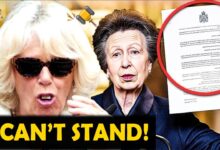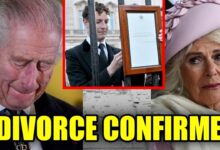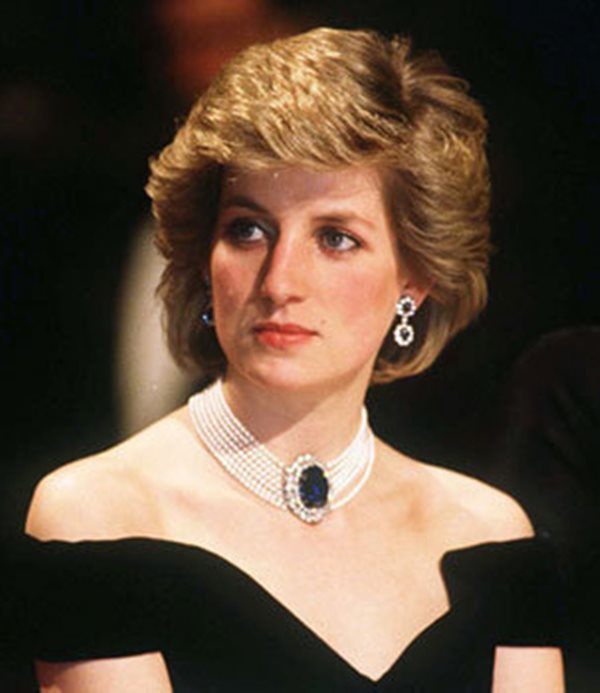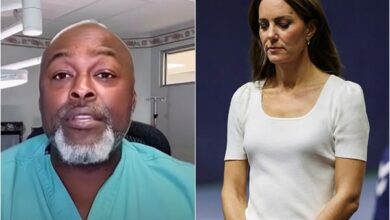At 75, King Charles FINALLY Admits What We All Suspected!
In a shocking development, King Charles III has finally broken his silence on one of the most controversial moments in modern royal history—the tragic death of Princess Diana. After years of swirling conspiracy theories and unanswered questions, the 75-year-old monarch’s recent remarks have reignited public debate, raising serious concerns about the royal family’s role and influence.
During a candid discussion, King Charles acknowledged the complexity surrounding Diana’s untimely death, subtly hinting at deeper issues that have long been speculated but never confirmed. For many, this was the admission they had been waiting for—a subtle nod to the long-standing theories that Diana’s death was not as straightforward as it seemed.
“Her death was a tragedy, but there were elements we couldn’t control,” Charles reportedly stated, leaving the public to interpret his words as an acknowledgment of the theories that have persisted for decades. His statement has sent shockwaves through royal circles and beyond.
For years, conspiracy theorists have speculated that Princess Diana’s outspoken nature and her growing influence posed a threat to the monarchy. Some believed that the royal institution, deeply rooted in tradition, viewed Diana as a disruptor who could undermine their control. Charles’ recent comments have breathed new life into these theories, validating public skepticism and causing many to reconsider the official narrative.
With his admission, calls for a renewed investigation into Diana’s tragic death have gained traction. Many believe that if Charles is willing to acknowledge the complexity of the situation, it could open the door to new evidence and revelations.
This revelation comes at a particularly fragile time for the British monarchy, which has been grappling with public relations issues and shifting perceptions in recent years. King Charles’ words challenge the royal family’s carefully cultivated image, suggesting that behind the palace walls, darker forces may have been at play.
For the public, this acknowledgment is a significant moment—one that could shift the historical narrative of Diana’s life and death. It forces a reevaluation of the relationships within the royal family and the immense pressures faced by those who, like Diana, have dared to challenge the institution.
Princess Diana was known for her compassion, charity work, and her deep connection to the public. But with this latest admission, her legacy takes on new meaning. Diana is now being remembered not just for her kindness, but also as a symbol of resistance against institutional secrecy and power.
Her life serves as a stark reminder of the dangers faced by those who dare to defy powerful institutions. Diana’s struggles, particularly as a woman in a male-dominated system, highlight the very real threats faced by individuals who challenge the status quo.
King Charles’ unexpected remarks come at a time when public trust in traditional institutions is at an all-time low. Across the world, there is a growing movement questioning authority and the narratives promoted by the powerful. Diana’s story, once seen as a personal tragedy, now resonates globally as a fight for justice and transparency.
This generational shift in perspective is particularly evident among younger audiences, who are increasingly skeptical of the monarchy and other traditional power structures. Charles’ admission could mark a turning point, not just for the royal family, but for global institutions that thrive on secrecy.
As discussions about Princess Diana’s death continue to unfold, one thing is clear: her story is far from over. Charles’ admission has opened the floodgates, and public calls for transparency and accountability will only grow louder. The question now is whether the monarchy can withstand the scrutiny, or if this revelation will mark the beginning of a broader reckoning with its past.
For now, Diana’s legacy shines brighter than ever—not just as the “People’s Princess,” but as a powerful symbol of the fight against corruption and institutional secrecy.
:max_bytes(150000):strip_icc()/GettyImages-2776466-abec06bd729546489e7635f59624cdfd.jpg)





